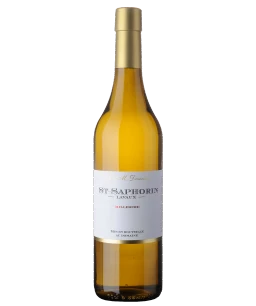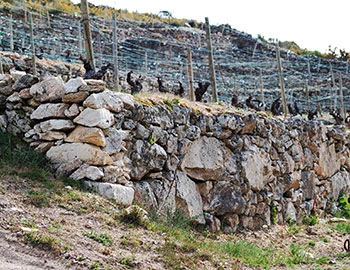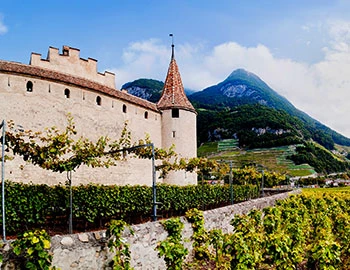Lavaux
The Lavaux: In the stronghold of Chasselas
The Lavaux comprise 825 of the 3,800 total hectares in Vaud, and form the heart of viticulture in this wine-growing canton. In the sometimes spectacularly steep terraced vineyards, the Chasselas grape demonstrates that it can produce tightly structured crus shaped by the terroir. The wines from the 54-hectare grand cru site, Dézaley, have a legendary reputation. More delicate wines are produced in the western parts of the Lavaux (Lutry and Villette) and the eastern foothills (Montreux).
White wines from Lavaux
Red wines from Lavaux
The Lavaux is the only wine region to be represented on a bank note (the 200 Swiss franc note). Thanks to its spectacular location on Lake Geneva and a wine culture developed over more than 1000 years, the Lavaux was listed as a UNESCO World Heritage Site in 2007.
Terroir wines
It was Cistercian monks who, in the 10th century, cleared the steep slopes and built terraces on which wine production is still carried out. The soil is characterized by freshwater molasse, which was deposited with the formation of the Alps. For this reason, soft formations like sandstone alternate with rocky terroir (e.g., Nagelfluh). The Rhône glacier made the most recent contribution, leaving behind debris during its retreat over 15,000 years ago. While primary rock soils dominate the upper slopes, the vines take root in deeper terroirs in the lower areas.
In terms of climate, the lake not only provides more intense solar radiation by reflecting sunlight; it also has a balancing effect on temperatures. With an annual average temperature of 10.5 degrees Celsius and an annual average rainfall of 1,200 millimeters per year per square meter, conditions for producing balanced white wines are ideal. Although Chasselas undisputedly plays the starring role, specialties from varieties like Sauvingon Blanc, along with new selections such as Gamaret or Garanoir, are on the upswing.












